
Platform to map living brain noninvasively takes next big step
A technology designed to read gene activity in the brain from a simple blood test has now cleared a major translational hurdle.

Platform to map living brain noninvasively takes next big step
A technology designed to read gene activity in the brain from a simple blood test has now cleared a major translational hurdle.
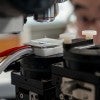
New technique spots hidden defects to boost reliability of ultrathin electronics
Researchers at Rice have shown that hard-to-spot defects in a widely used two-dimensional insulator can trap electrical charges and locally weaken the material, making it more likely to fail at lower voltages.

On Feb. 17, the SSPEED Center welcomed Jed Anderson, founder and CEO of EnviroAI, for a lecture on environmental AI permitting.

Frank Tittel, Rice professor who advanced laser spectroscopy, dies at 92
Frank Klaus Tittel, a physicist whose career paralleled the rise of modern laser technology and who helped build Rice’s reputation in laser spectroscopy and trace-gas sensing over nearly six decades, died Feb. 17. He was 92.

Diamond owl swoops in with new method to keep electronics cool
A Rice research lab’s signature keepsake helped perfect a method for growing patterned diamond surfaces that could help decrease operating temperatures in electronics by 23 degrees Celsius.

Rice and Lehigh partner with global industry leaders to revolutionize catastrophe modeling
The Consortium for Enhancing Resilience and Catastrophe Modeling (CERCat) convened at Rice Feb. 5-6 for its semiannual meeting.

More precise DNA base editing could improve treatment for cystic fibrosis
Researchers at Rice and collaborators have refined a DNA base-editing technology to make it more precise, a step that could improve prospects for treating some patients with cystic fibrosis.
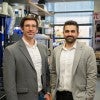
A new study from mechanical engineers at Rice describes a surprisingly straightforward fix for superhydrophobic surfaces: Instead of just engineering the surface’s chemistry and texture, they focused on engineering its heat flow.

Academic, industry and government partners chart future of physical AI in space at Rice-led event
Rice Nexus hosted its annual In-Space Physical AI Workshop, an event focused on the deployment of autonomous technology in space.

New Rice-led perspective charts path to next-generation water and energy membranes
A new invited perspective in Nature Water, led by Rice researchers and international collaborators, discusses the future of membrane science.
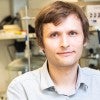
Noninvasive paths to complex brain science: Rice bioengineer named Sloan Research Fellow
Rice bioengineer Jerzy Szablowski has been named a 2026 Alfred P. Sloan Research Fellow in chemistry, one of the most competitive honors for early career scientists in the U.S. and Canada.

Rice engineering alumnus Doerr elected to National Academy of Engineering
John Doerr, a Rice alumnus and a longtime supporter of the university, has been elected to the National Academy of Engineering.
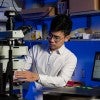
Metabolic clues emerge from new molecular map of Alzheimer’s
Rice scientists have developed the first complete, label-free molecular atlas of the Alzheimer’s brain in an animal model.
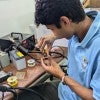
Rice360 and African universities inspiring new generation of inventors and global health innovators
When the Rice360 Institute for Global Health Technologies launched the first design studios in partner universities across Africa during Phase 1 of the NEST360 initiative, the vision was clear: create sustainable, university-based ecosystems that empower students to design, prototype and commercialize lifesaving technologies inspired by real needs in their own communities.

Scientists camouflage heart rate from invasive radar-based surveillance
Rice researchers and collaborators have developed a system to camouflage heart rate from radar-based surveillance.